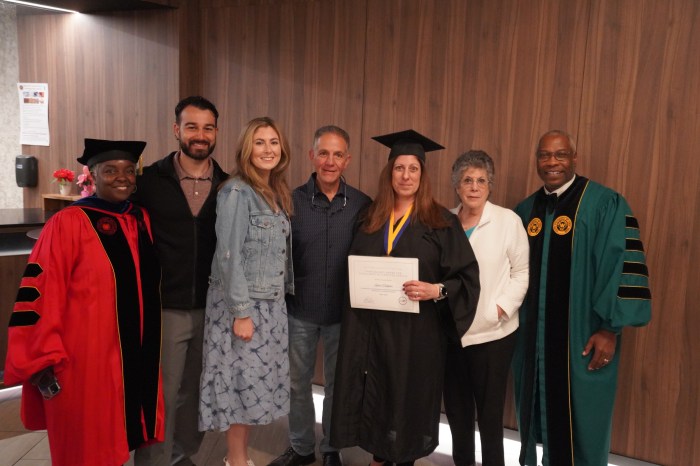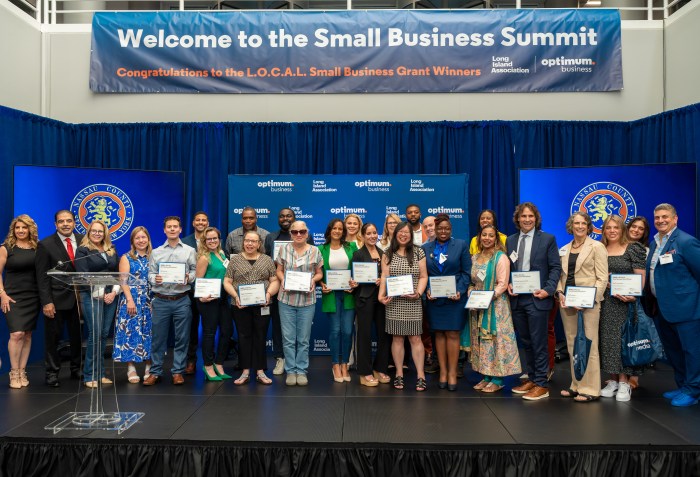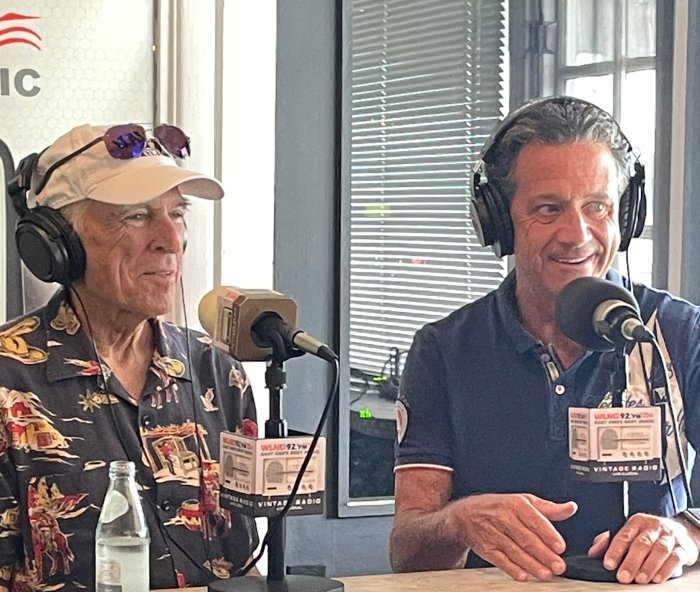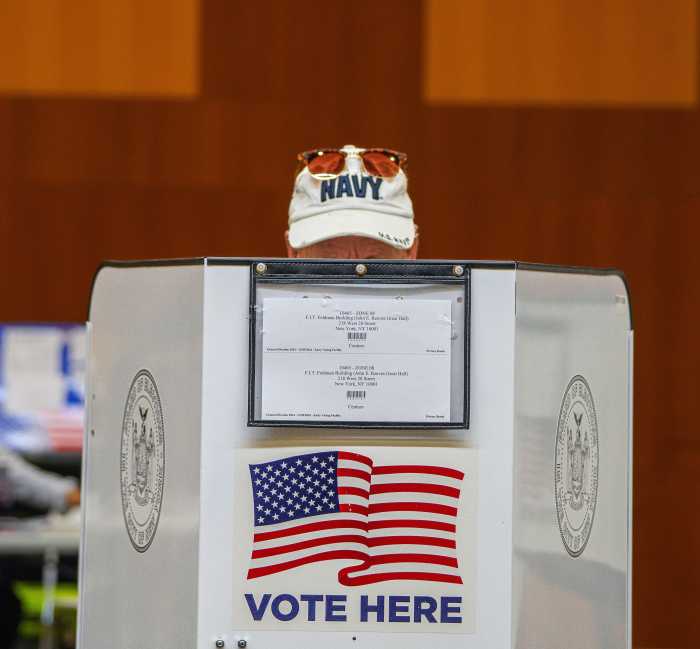State Senate and Assembly candidates sound off on creating revenue, redistricting and cutting down on unfunded mandates
The 2010 Meet The Candidates Night at the Plainview-Old Bethpage Library was a rowdy affair, with candidates for NYS Senate and Assembly seats harshly criticizing each other and sometimes yelling to be heard over a hostile crowd. In comparison, the 2012 Meet the Candidates Night on Tuesday, Oct. 2, moderated by Paula Blum of The League of Women Voters, was downright friendly. Despite the fact that the event was shorter and the crowd smaller, the candidates by and large had no problem proposing specific solutions to problems in response to questions from members of the audience.
“I think our national political discourse would be far better off if the discourse were as civilized and as substantive as it was tonight,” commented 6th District Senate Candidate Ryan Cronin at the end of the evening.
In attendance were Senator Carl Marcellino (R), incumbent, 5th SD (his opponent, David Wright, was not present); Ryan Cronin, Democratic challenger for the 6th SD (his opponent, Kemp Hannon (R), was not present), Assemblyman Charles Lavine (D), incumbent, 13th AD; Louis Imbroto, Republican challenger for the 13th AD; Jeffrey Peress, Green Party challenger for the 13th AD; Michael Montesano (R), incumbent, 15th SD; and challenger for the 15th AD, Mario Ferone (D).
The incumbents present painted a far rosier picture of Albany politics than they had two years ago, with Marcellino citing a partnership between the Republican Caucus in the State Senate and Governor Andrew Cuomo that has led to lowered taxes and spending. According to Marcellino, spending has been cut to approximately 2008 levels and next year, residents’ taxes will go down.
“These are the lowest tax rates in 58 years,” he noted.
Meanwhile Lavine and Montesano both stated that Albany dysfunction was still an issue, but that there had been a lot of improvement. Lavine recounted his success working with people on the other side of the aisle to get several bills passed, overcoming the obstacle of hyper-partisanship, while Montesano noted that the Assembly has a good agenda going forward. “Things are looking up in Albany,” said Montesano.
Among the challengers, Mario Ferone—currently a student at Stony Brook University—said his reason for running was to give people his age a voice in government. “I believe it’s very important to represent the younger population. Right now, there’s no one representing them; this voice is going unheard in the state legislature and it’s unfair,” said Ferone. Imbroto, also a young candidate, said that he also wanted to help make it easier for people his age to stay on Long Island.
Cronin, a lawyer who grew up in the 6th SD and recently represented victims of the famous Bernie Madoff ponzi scheme in court, pointed out that his opponent, Kemp Hannon, has now been in office for 35 years. “I simply don’t believe that the people who created the problems should be entrusted to fix the problems,” he said.
Perhaps the wildcard of the event, Green Party candidate Peress, presented the largest number of specific, controversial ideas for change: getting rid of rebates for the Stock Transfer Tax and using the billions saved there to plug the state’s deficit, implementing a progressive income tax based on personal income instead of assessed property values, forgiving student loan debt, and legalizing industrial hemp and marijuana to create revenue.
“We’re wasting millions of dollars; prohibition didn’t work in the 1920s, it’s not working now,” said Peress.
The other candidates proposed different ideas for raising revenue. Cronin proposed striking a partnership with the owners of the many empty storefronts and office spaces on Long Island; by giving start-up businesses a home for a year or two in an otherwise empty space, many new businesses could get off the ground, increasing the tax base. He also said that he believed there had been a “complete failure at all levels of government” to deal with Nassau’s HUB area, something he sees as critical to the region’s economic health. Cronin noted later that he also supports raising the minimum wage, something that he does not believe will hurt small businesses because the money spent will go back into the local community.
Montesano noted that the Assembly had already saved money recently by consolidating some government offices, and discussed the possibility of money recovered from investigations of Medicaid fraud being returned to the county that performed the investigation rather than the state; something recently implemented in Nassau County specifically thanks to a partnership between County Executive Edward Mangano and Congressman Steve Israel.
Lavine agreed with other candidates that the legislature needed to make the state more business-friendly, something he credited Governor Andrew Cuomo with already working toward. Lavine also said that the state needed to make more of an investment in public education, “because for many years, we were not spending sufficient amounts, and we were not able to keep up with the educational systems of other states— especially when it came to our public universities.”
On environmental issues, most of the candidates came out against hydrofracking, although some noted that they were waiting for more information on potential health risks and other concerns from the Department of Environmental Conservation before saying so unilaterally (with the exception of Peress and Ferone, who both came down strongly against the practice.) Marcellino pointed out that though hydrofracking cannot take place on Long Island (which lacks the rock formations for it), there has been talk of using sewage treatment facilities on the Island to treat fracking wastewater from upstate; something he strongly opposes.
“We drink the water beneath our feet…we can’t afford to bring anything to the Island that could impact our drinking water,” said Marcellino. Other candidates also voiced concern about groundwater contamination.
On the subject of unfunded mandates, all the candidates agreed they were a major problem. Montesano pointed out that there were efforts to get rid of some of the mandates, but that it was slow going.
“The problem is that the Mandate Relief Committee has such a difficult time going through all of them because they’re so convoluted, and they’re layered on top of each other,” said Montesano.
To put a stop to future unfunded mandates, Imbroto suggested a practical solution: putting a cap on the dollar cost of mandates. If a mandate will cost a school, village or municipality over a certain amount, the state itself should have to pay for it, he said. With this system, the state would think twice about passing any mandates that aren’t strictly necessary, he added.
The discussion of unfunded mandates segued into thoughts on education, since many unfunded mandates are imposed on school districts. Ferone, Lavine and Peress took the opportunity to comment on standardized testing, which costs districts millions of dollars, and the fact that they disapproved of teachers having to teach to a test. However, Marcellino pointed out that a lot of the educational issues being discussed related to federal programs, like No Child Left Behind and Race To The Top, not state-level decisions.
“I can count on one hand, in the years that I have been in the Senate, the number of mandates that the legislature has imposed on the school districts,” said Marcellino, going on to say that the legislature doesn’t have direct control over the state education department.
Just about the only issue that strongly divided the candidates was the question of whether or not to issue driver’s licenses to illegal aliens.
“First of all, I don’t believe people are illegal; there are people here who are undocumented,” said Lavine, who went on to praise President Obama for taking a “courageous” stand to protect people who were brought here as infants illegally by their parents, and to state that he had no problem with issuing those people drivers’ licenses.
Peress agreed with Lavine, noting that he resented the fact that he had to provide a Social Security number when he himself had renewed his license. “Your Social Security number is not meant, and never was meant for anything other than your income tax and your pension,” he said, commenting that legal status and the issue of whether or not one can drive a car are two different things. Cronin and Ferone also said they would grant the licenses, while Montesano and Imbroto both said they would not; Marcellino had already left the event at the time the question was asked.
Finally, the candidates spent a fair amount of time talking about redistricting—something especially relevant in Nassau County right now. Peress stated that so-called bipartisan redistricting is really partisan in practice, and should be done by a panel of citizens, or a federal judge if necessary. Lavine noted that while many of his peers signed on to former NYC Mayor Ed Koch’s Redistricting Pledge in 2010, no sooner had the senate convened then everyone voted counter to Koch’s wishes.
“I was extraordinarily disappointed; I remain extraordinarily disappointed,” said Lavine, saying that what he saw as the exploitation of Major Koch is just one of the reasons New Yorkers are so cynical about politics. However, for independent redistricting to ever become a reality, people have to be up in arms about it, he said—which, in his experience, they were not two years ago.
“Unless and until it becomes prominent on the public’s radar, nothing is going to happen because it’s far too convenient to redistrict in such a way that those who are incumbents protect themselves,” concluded Lavine. Opponent Imbroto then stated that Lavine himself had benefited from gerrymandering, which Lavine said he took personal offense to. In response to that allegation, Lavine said during his closing statement that the 13th AD had changed little from its inception 30 years ago.
Montesano explained to the audience that there would need to be a Constitutional amendment to change the method of redistricting; something that, if started now, could hopefully be accomplished before the next census is 2020.
“I hope to live that long,” quipped a resident in the audience to laughter. Though the moderator had said at the beginning of the event that audience members were not allowed to comment, no one seemed to begrudge him the remark.





























